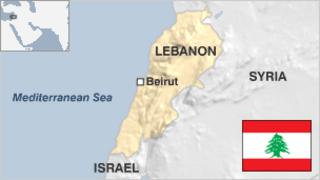Home » Middle East »
Lebanon country profile
With its high literacy rate and traditional mercantile culture, Lebanon has traditionally been an important commercial hub for the Middle East.
It has also often been at the centre of Middle Eastern conflicts, despite its small size, because of its borders with Syria and Israel and its uniquely complex communal make-up.
Shia Muslims, Sunni Muslims, Christians and Druze are the main population groups in a country that has been a refuge for the region’s minorities for centuries.
FACTS
The Lebanese Republic
Capital: Beirut
Population 6 million
Area 10,452 sq km (4,036 sq miles)
Major language Arabic
Major religions Islam, Christianity
Life expectancy 78 years (men), 81 years (women)
LEADERS
President: Michel Aoun
Michel Aoun was elected by parliament in October 2016, ending a political stalemate which had left the country without a head of state since May 2014.
He is the founder of the mainly Maronite Christian political party, the Free Patriotic Movement (FPM). He was army commander-in-chief from 1984 until 1989 and was appointed prime minister of the interim military government in 1988.
He launched an unsuccessful “liberation war” against the presence of Syrian forces in 1989 and fled to France in 1990. When Syrian troops left in 2005, he returned to form an alliance with pro-Syrian parties.
Prime minister: Saad Hariri
A Sunni Muslim leader and businessman, Saad Hariri was nominated to form a government by President Aoun in November 2016.
He previously held the post between 2009 and 2011, after which he lived outside the country citing safety concerns.
In November 2017 he sparked a major political crisis by resigning in a televised address which he made in Saudi Arabia.
A month later he formally withdrew his resignation, saying that all members of the government had agreed to stay out of conflicts in Arab countries. Mr Hariri had made the policy of so-called dissociation a key condition for his remaining as prime minister.
Following the assassination of his father and former Prime Minister Rafik Hariri in 2005, he entered politics and founded the Future Current political party.
He was born in Saudi Arabia in 1970 and has spent much of his adult life there. His construction company, Saudi Oger, is based in Saudi Arabia and Mr Hariri is considered one of Lebanon’s richest individuals.
MEDIA
Lebanon’s broadcasting scene is developed, lively and diverse, and reflects the country’s pluralism and divisions.
It was the first Arab country to permit private radio and TV. These outlets dominate the broadcasting scene and air some of the most outspoken TV talk shows in the region.
News websites have emerged as a key information source.
TIMELINE
Some key dates in Lebanon’s history:
1516-1918 – Lebanon is part of the Ottoman Empire.
1920 – The League of Nations grants the mandate for Lebanon and Syria to France, which creates the State of Greater Lebanon out of the provinces of Mount Lebanon, north Lebanon, south Lebanon and the Bekaa.
1926 – Lebanese Representative Council approves a constitution and the unified Lebanese Republic under the French mandate is declared.
1944 – France agrees to transfer power to the Lebanese government on 1 January.
1975-1990 – Lebanese civil war
1992 – After the first elections since 1972, wealthy businessman Rafik Hariri becomes prime minister.
2000 – Israel pulls out of south Lebanon
2005 – Former prime minister Rafik Hariri is killed by a car bomb in Beirut, sparking anti-Syrian rallies and a political crisis.
Source: Read Full Article



